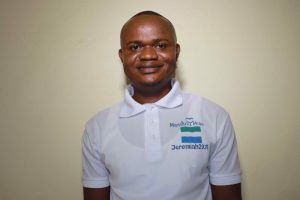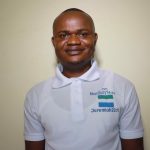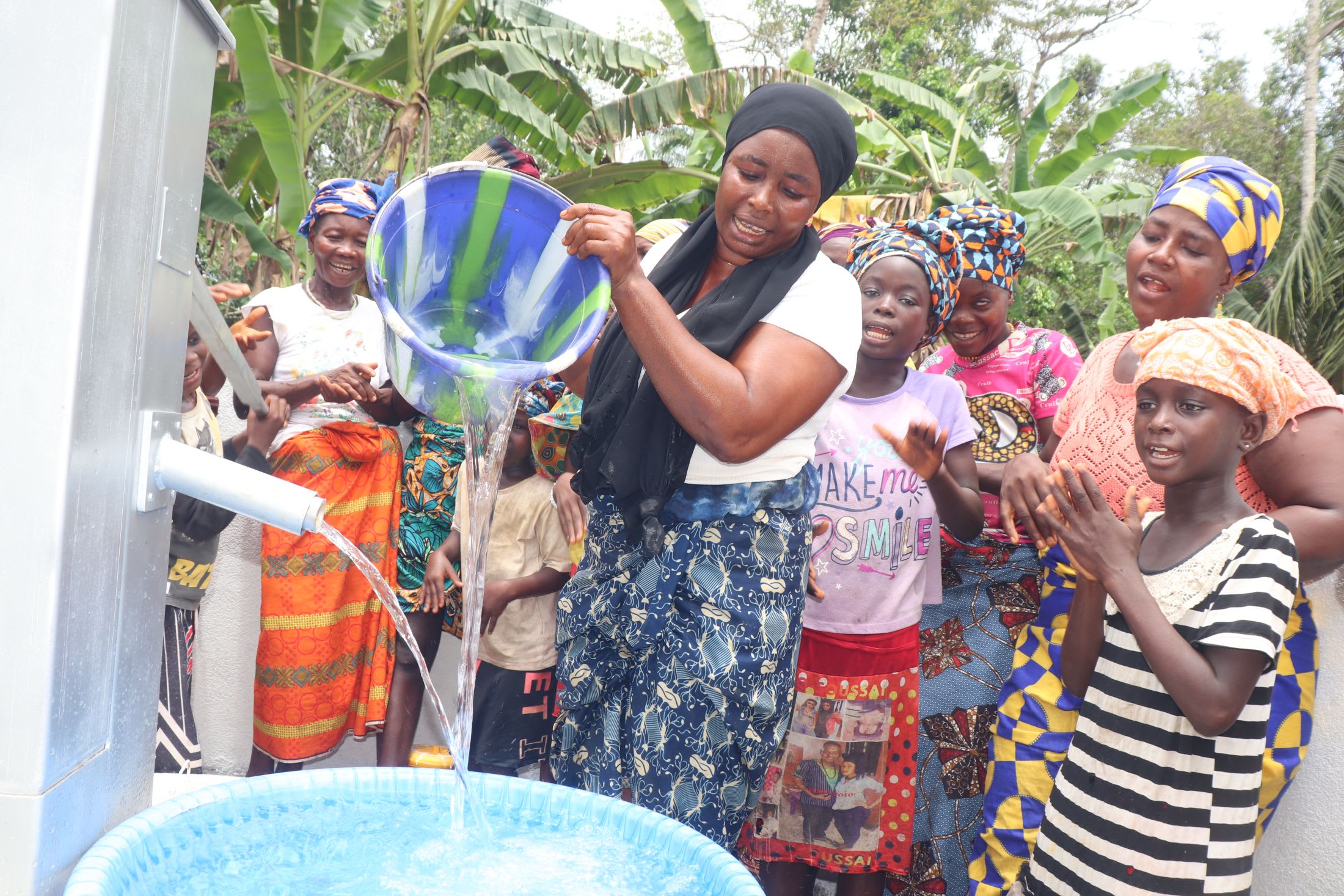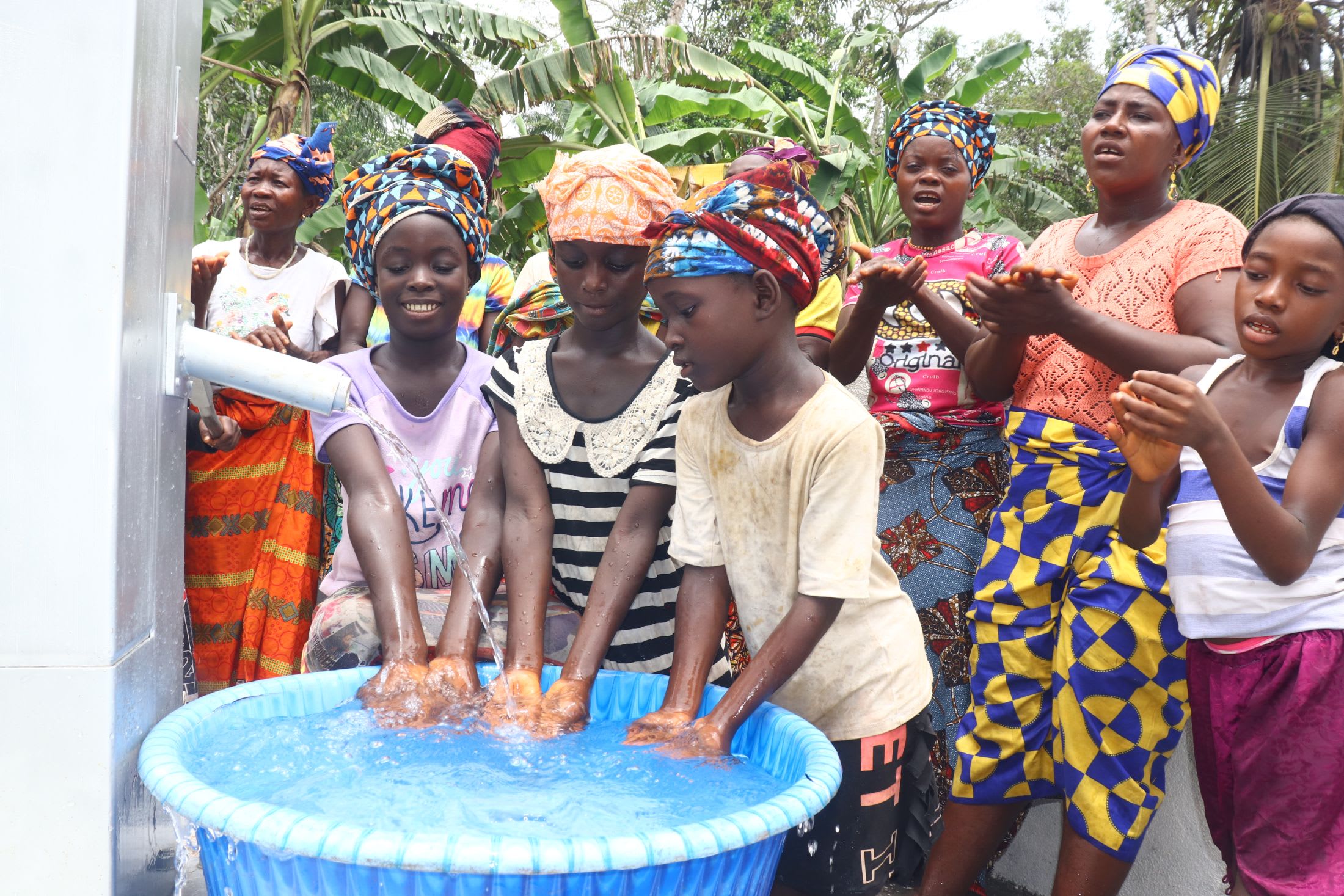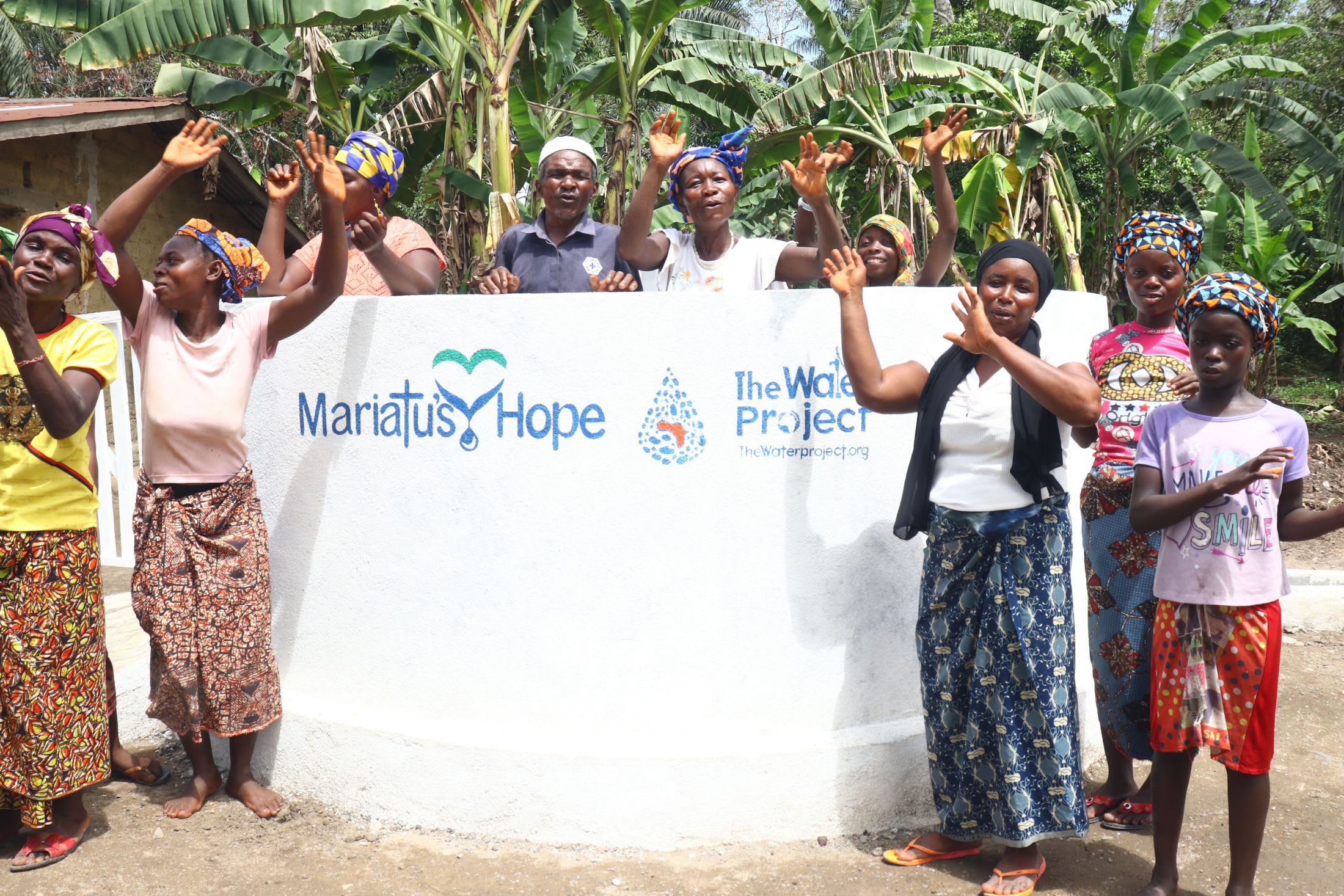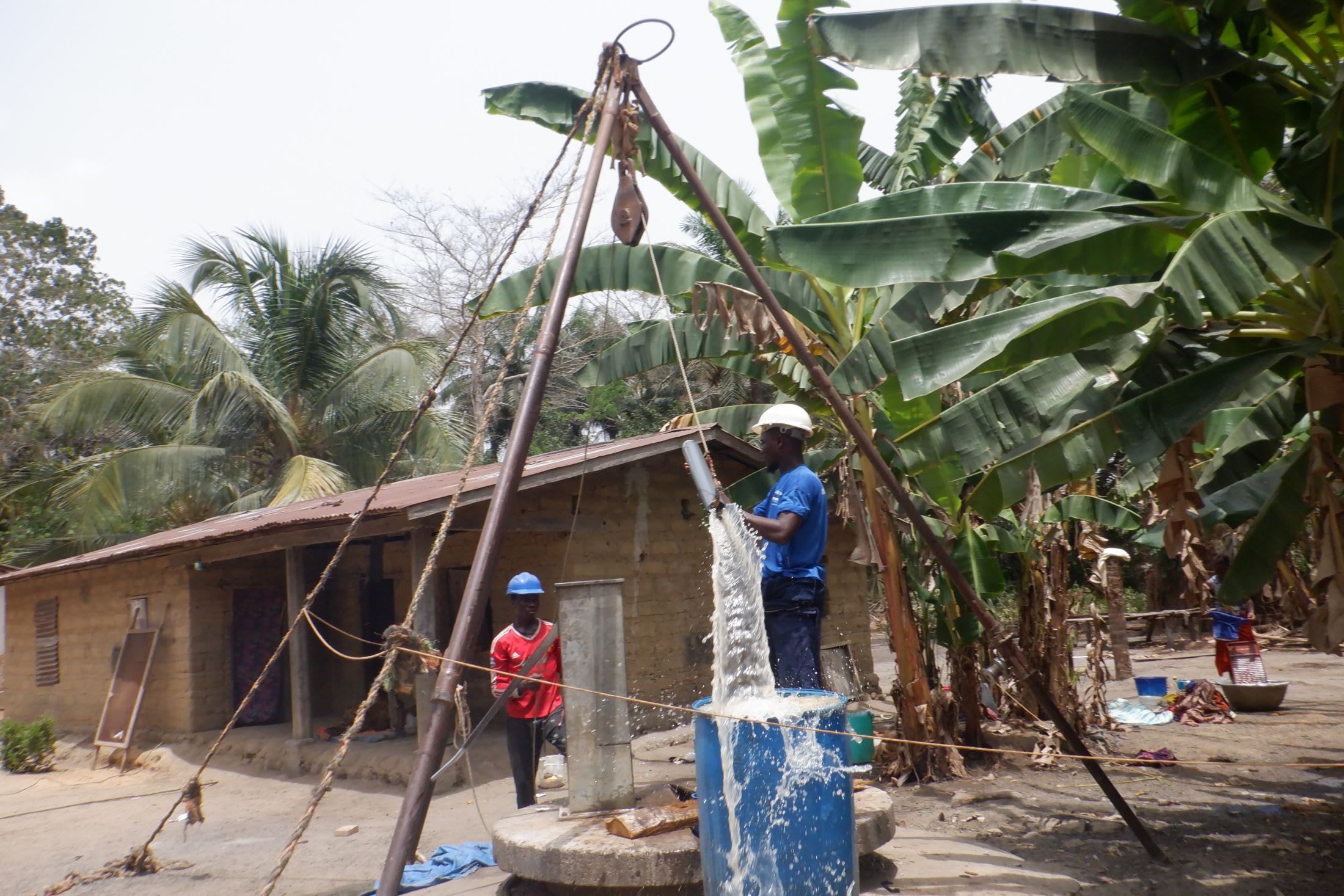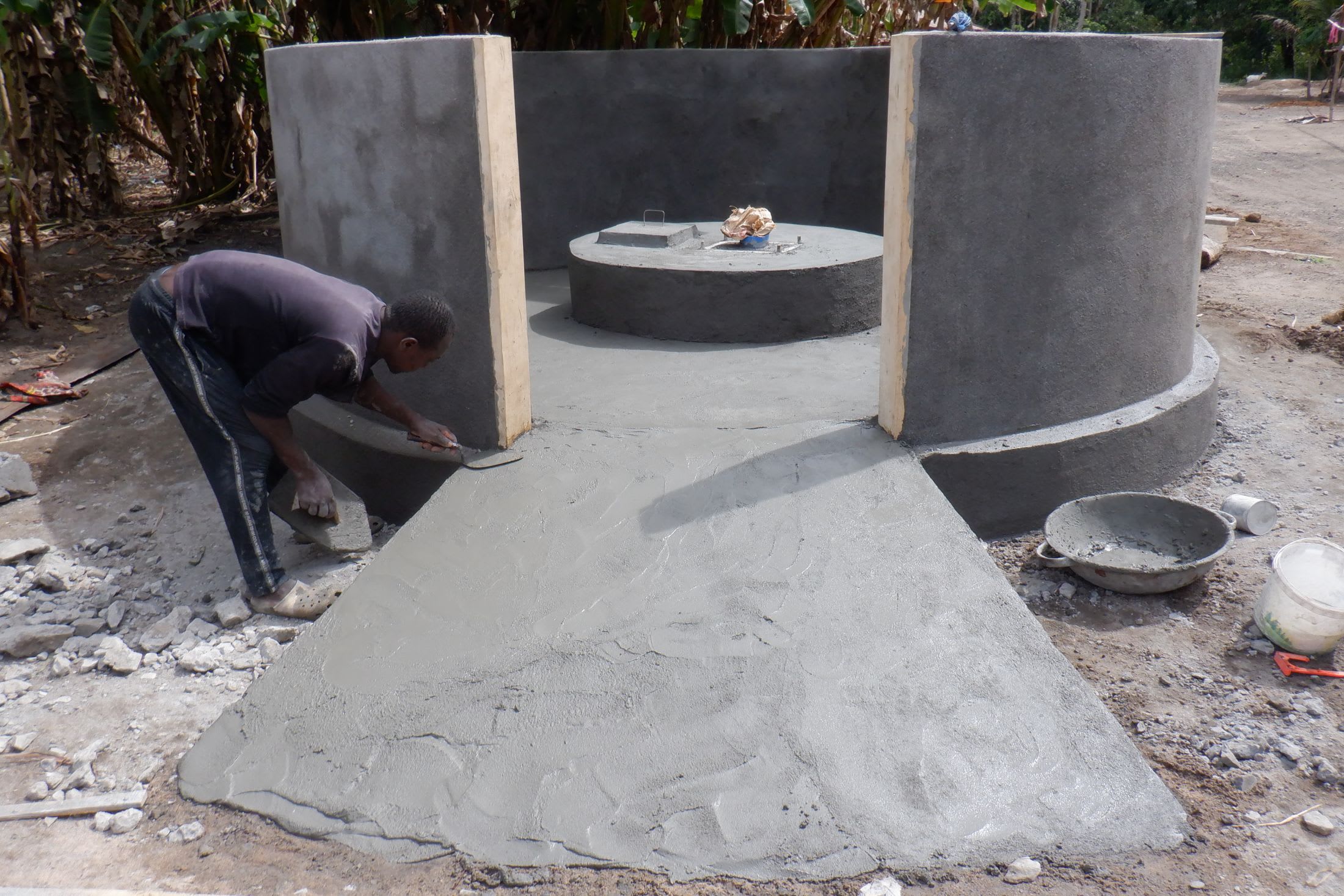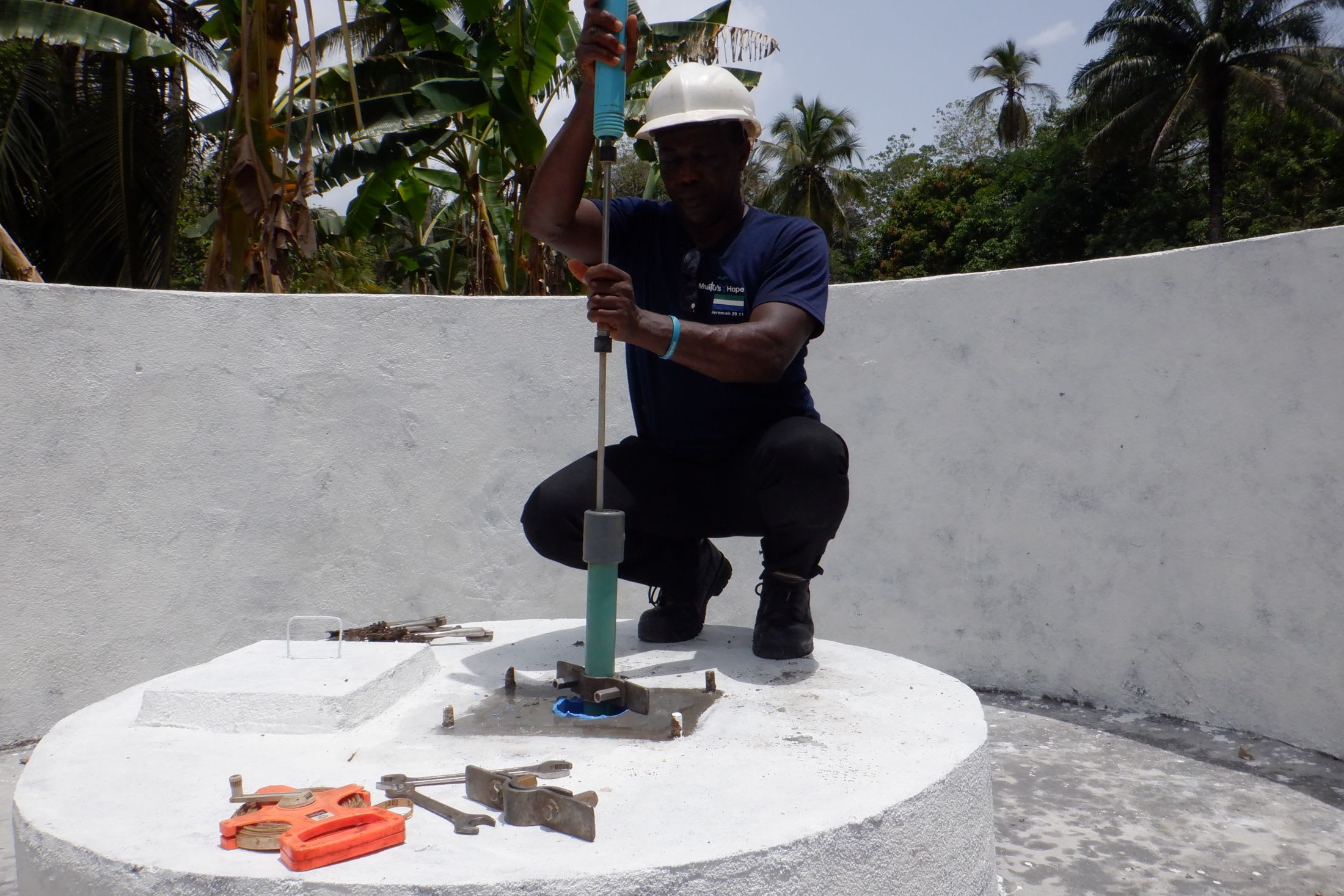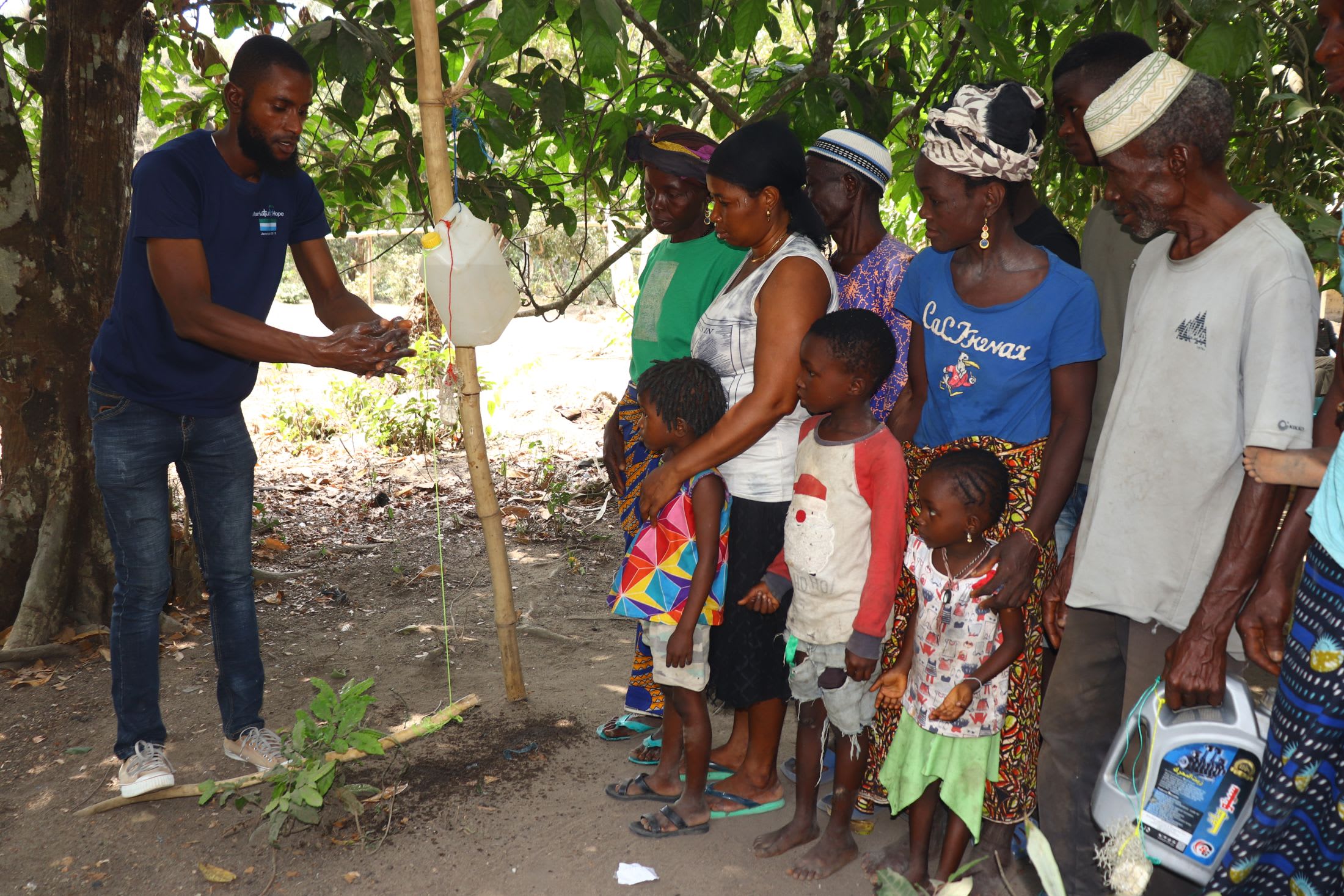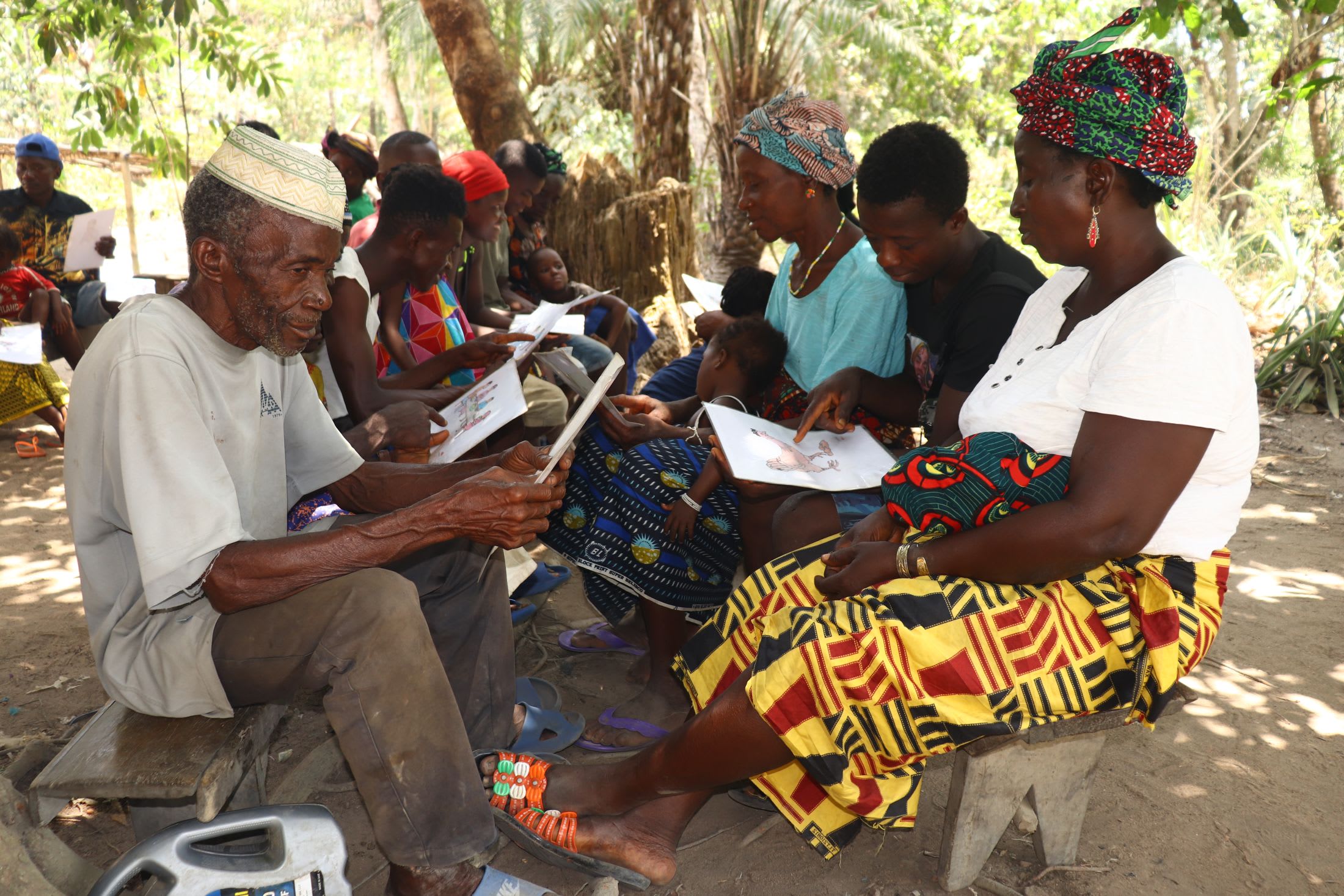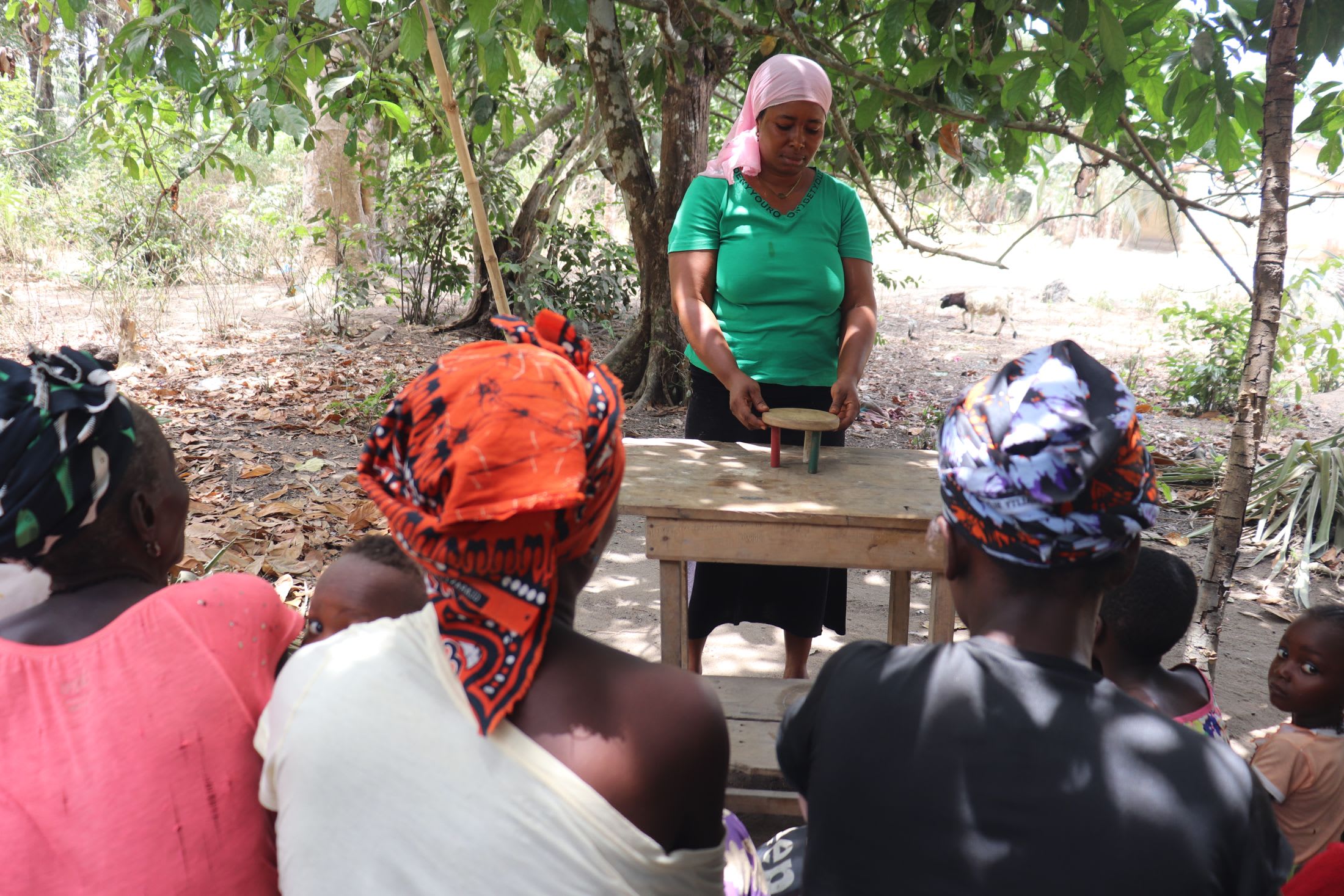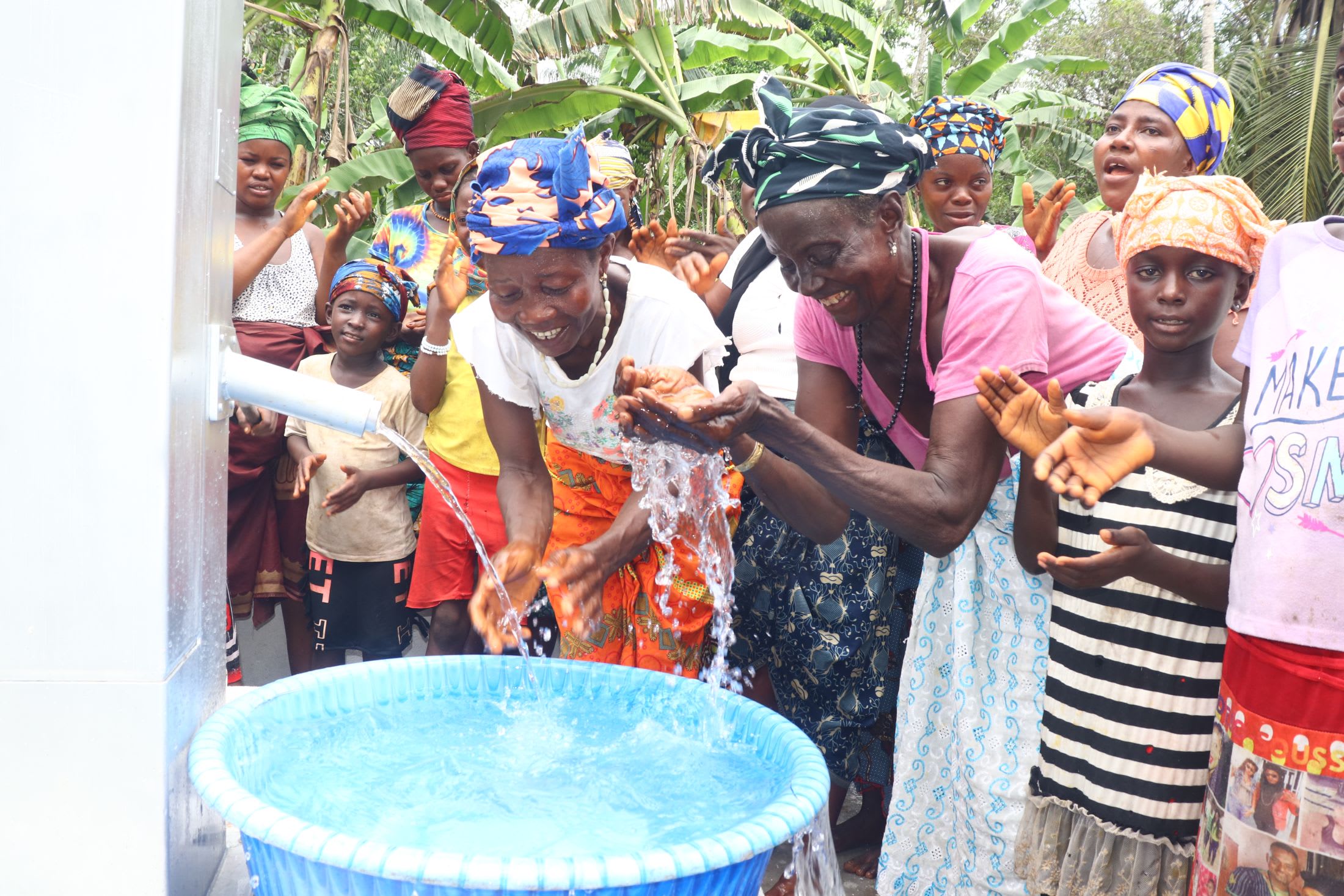The 200 residents of the Malena Community struggle to access water to meet their basic needs since their well runs dry for several months at a time. The only other option is to travel far to collect water from a swamp. Every day, people wonder where they will find water and how ill it will make them.
Field Officer Phillip James Allieu shared, "The use of the two water sources of this community is not safe for the health of the people. The main water source [is] a protected well with a pump. The well area has water contaminants that may cause waterborne diseases after drinking water from the source. The stagnant water around the water well of this community is also a breeding place for mosquitoes that are causing the spread of malaria parasites in the community. The health report of typhoid and frequent stooling is common during the dry season when there is a shortage in water."

The well is troublesome, as is the swamp. Collecting water from the swamp is less than ideal, as community members must stand in water, sometimes up to their waists, to fetch it. Not only are they likely to contract illness from consuming the swamp water, but they are also exposed to other dangers in the swamp.
"The swamp water is also not usable by the community during the rainy season because of flooding of the environment. The filthy condition of the water during the dry season is another [detriment] of getting waterborne diseases from drinking the water. However, the reported sicknesses from the community during the baseline survey are frequent stooling, typhoid, and malaria," James continued.
However, water-related sicknesses aren't the only hardship the people of Malena Community face.
39-year-old Farmer Rugiatu Kamara, seen below collecting water at the swamp, shared her experience with her community's water crisis. "In the morning, before I go to the farm, I fetch water for drinking and domestic duties. I found it difficult to fetch water during the dry season. When the water well gets dry, I fetch water from the swamp. The swamp water is not good for drinking because it is open and exposed to animals. The distance that I walk to fetch water from the swamp is far. I spend more time fetching water from the swamp in the morning before going to work on my farm. I cannot have enough time to complete all the daily activities."

The time wasted in this community is detrimental to their present and future. They cannot complete other tasks when they spend all day trying to collect water. When they can't farm or tend to their household needs, it takes away from improving their futures.
According to UNICEF, Women and girls waste 200 million hours per year fetching water.
15-year-old Kadiatu K, seen below, is familiar with that challenge. She said, "I must wake up early to complete everything on time and go to school. I returned to the house from school in the afternoon to fetch water and to prepare food before my parents would return from the farm. I could be very exhausted after I had finished the daily tasks. It would be hard for me to sit down to read my school notes because I am tired and just need to rest."

To overcome a cycle of poverty, children must be able to get an education. Girls especially feel the disparity, as they are most often responsible for water collection. When they spend all their time and energy on that task, as Kadiatu said, they are too exhausted to focus on school.
The rehabilitation of the community well will enable people like Rugiatu to tend to their farms and provide for their families, and children like Kadiatu to hopefully focus on their educations in an effort for a brighter future.
The Proposed Solution, Determined Together...
At The Water Project, everyone has a part in conversations and solutions. We operate in transparency, believing it benefits everyone. We expect reliability from one another as well as our water solutions. Everyone involved makes this possible through hard work and dedication.
In a joint discovery process, community members determine their most advantageous water solution alongside our technical experts. Read more specifics about this solution on the What We're Building tab of this project page. Then, community members lend their support by collecting needed construction materials (sometimes for months ahead of time!), providing labor alongside our artisans, sheltering and feeding the builders, and supplying additional resources.
Water Access for Everyone
This water project is one piece in a large puzzle. In Kenya, Sierra Leone, and Uganda, we're working toward complete coverage of reliable, maintained water sources that guarantee public access now and in the future within a 30-minute round trip for each community, household, school, and health center. One day, we hope to report that this has been achieved!
Training on Health, Hygiene & More
With the community's input, we've identified topics where training will increase positive health outcomes at personal, household, and community levels. We'll coordinate with them to find the best training date. Some examples of what we train communities on are:
- Improved hygiene, health, and sanitation habits
- Safe water handling, storage & treatment
- Disease prevention and proper handwashing
- Income-generation
- Community leadership, governance, & election of a water committee
- Operation and maintenance of the water point

 Borehole Well and Hand Pump
Borehole Well and Hand Pump









